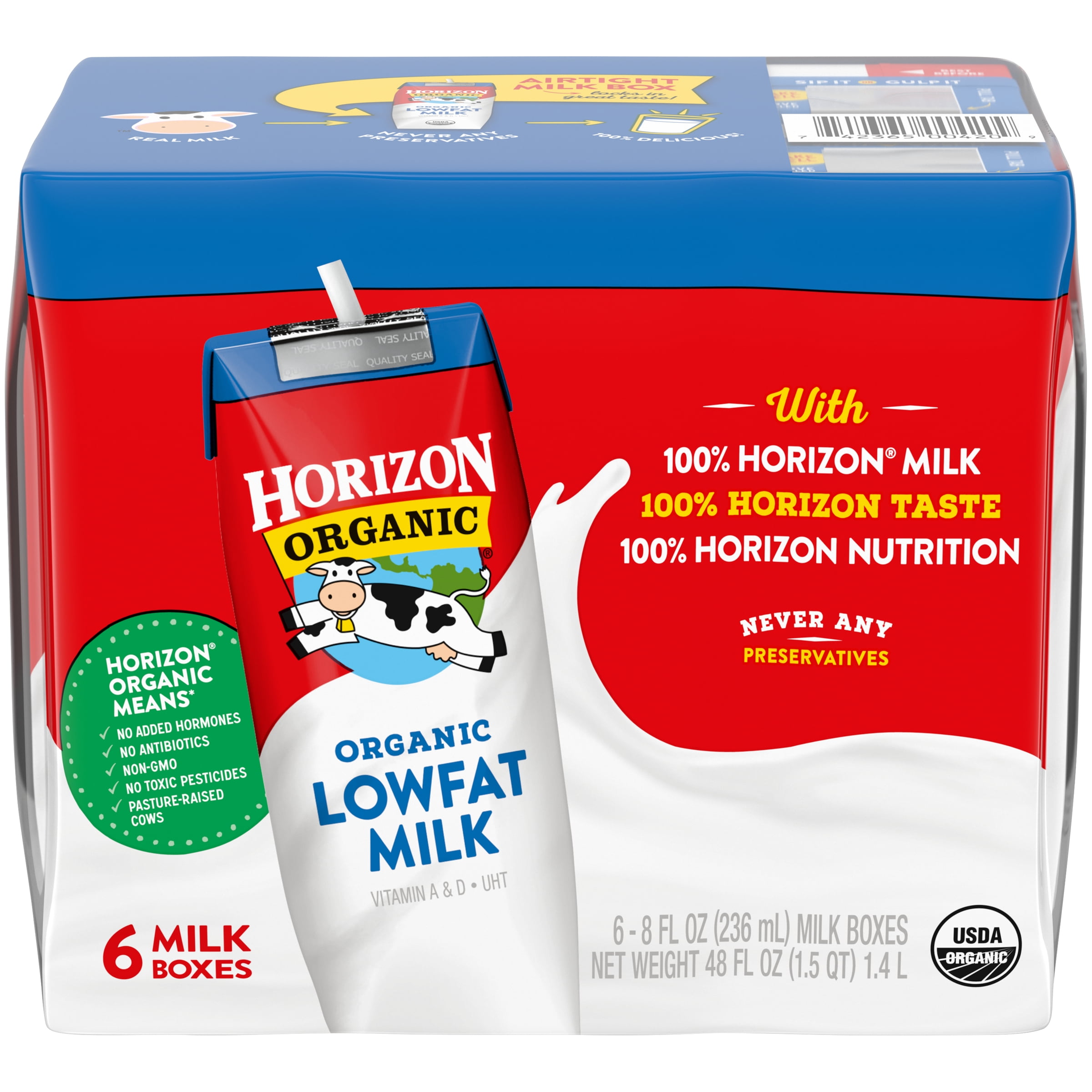

The raw milk travels an average of 776 miles to the plants.Īction: Horizon Organic will optimize its pickup routes to minimize the miles driven to the processing plants. Transporting milk from farm to the processing plant–9% of total carbon footprintįootprint: Raw organic milk is collected from Horizon Organic's farmer partners and trucked to one of 10 milk processing plants that Danone owns. Grid electricity is generated by the burning of fossil fuels.Īction: Horizon has created a Farmer Investment Fund that allocates $15 million for farmers to pursue projects that improve energy efficiency. The methane escapes into the air when cows burp.Īction: Horizon follows organic animal welfare standards, but it is exploring how it can reduce methane generation through the cows' diets.įootprint: Manure emits different levels of methane and nitrous oxide-two greenhouse gases-depending on how it is stored, treated and applied to land.Īction: Horizon is working with its farmers to reduce the release of greenhouse gasses by improving manure storage and handling, investing in new equipment and adopting better practices.įootprint: Milking cows requires using electricity for cooling, lighting, operating pumps, ventilation, feeding equipment and more. Regenerative farming can boost soil health and lock carbon underground.įootprint: Cows' digestive process is called enteric fermentation, which naturally creates methane, a greenhouse grass. Organic feed crops –14% of total carbon footprintįootprint: Organic grasses and crops are grown on dairy farms, but organic fertilizers, the energy used for harvesting, and the fuel used to transport grasses and crops create greenhouse gases.Īction: Horizon is studying regenerative farming practices on 28,000 acres. Environmental Protection Agency reported that in 2018, as much as 10% of the greenhouse gases generated in the United States came from farming and livestock. (All illustrations provided by Horizon Organic.) Two-thirds of the carbon footprint comes from the farms Together with our family farmer partners, we’re putting our hope for a brighter, more sustainable future into action," the website states. carbon credits to offset what we can’t reduce. "After reducing emissions wherever we can, we’ll purchase U.S. The company acknowledges, though, that it can't make enough changes to completely eliminate greenhouse gas emission.

We're now focusing on partnerships and investing in our family farmers to implement carbon reduction projects to meet our ambitious carbon positive by 2025 goal." "Releasing Horizon Organic's carbon footprint is only the first step in this journey. "Time is not on our side when it comes to climate change, and it's the responsibility of businesses to act with urgency and transparency," Deanna Bratter, head of Sustainable Development at Danone North America, said in a released statement. The company's goal is to reduce those emissions, considered as the effects of driving, to zero miles, according to the website. What does that mean? "Drinking one glass of Horizon Organic whole milk a day for a year is the emission equivalent of driving 632 miles," Horizon Organic's website says. The study concluded that one half-gallon of whole milk contributes the equivalent of 5.58 kilograms or 12.3 pounds of carbon dioxide to the atmosphere. "It informs dialogues as diverse as the policy relevance of product eco-labeling and the identification of key leverage points for reducing food system emissions." But studying the cumulative environmental effects of food systems by both resources used and emissions released supports a global approach to environmental management, the report says. Historically, research on food production only looked at local ecological effects, such as manure runoff, according to the report, Horizon Organic Milk carbon footprint and summary Life Cycle Assessment results. The study-commissioned by Danone North America, Horizon Organic's parent company-was conducted by Nicholson Consulting, which looked at the production process in 2018. Recently, the company reported the results of a cradle-to-grave Life Cycle Assessment that analyzed the environmental impacts associated with producing half a gallon of whole milk. Related: Horizon Organic commits to becoming carbon positive by 2025


 0 kommentar(er)
0 kommentar(er)
